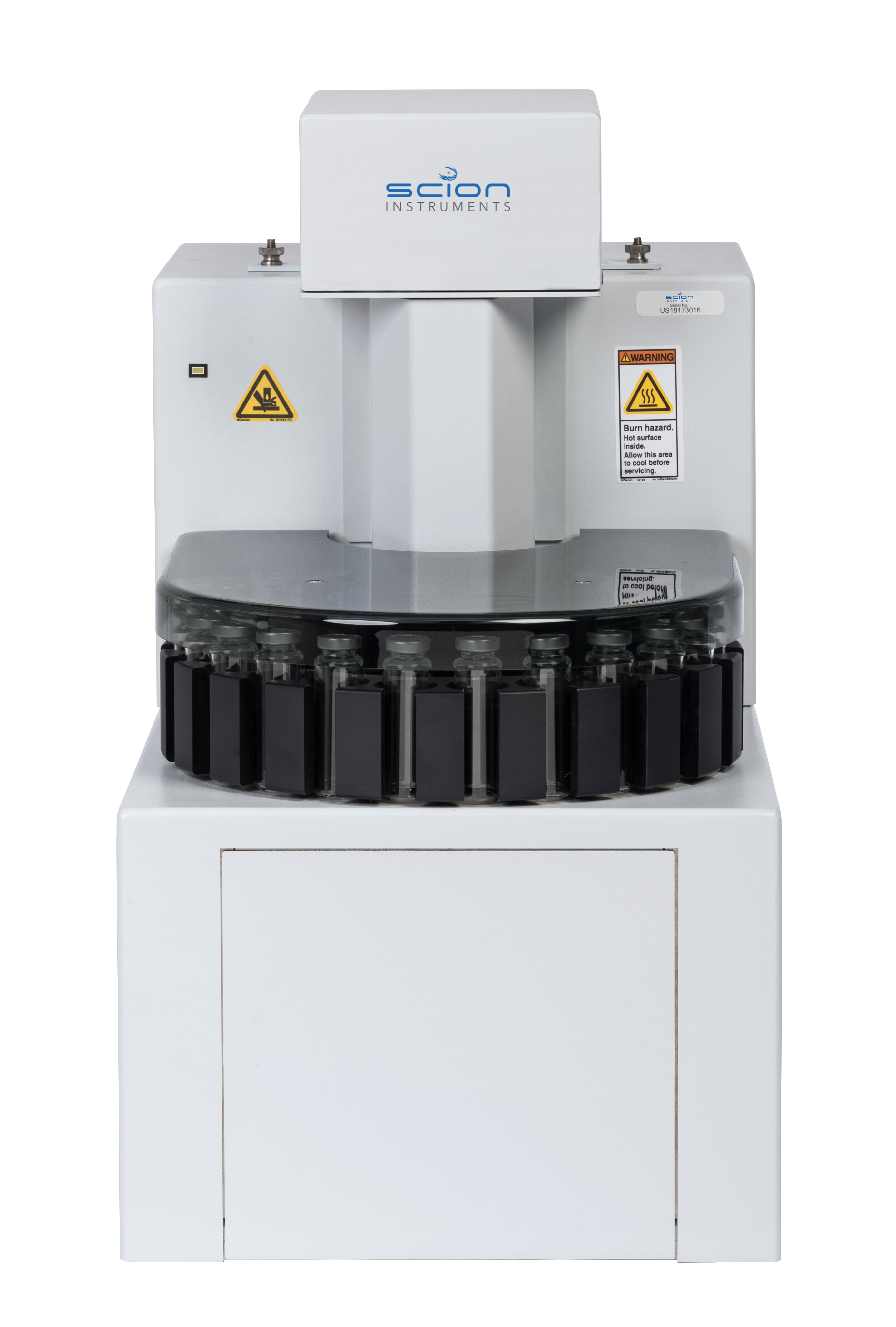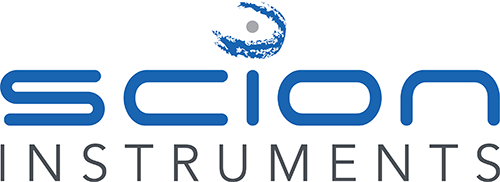
Versa Automated Headspace Vial Sampler
Static Headspace
Static Headspace is a technique used for sampling the gas phase of a sample. The technique can be used for both qualitative and quantitative analysis.
Static headspace is one of the most popular techniques for gas chromatography due to its versatility for analysing volatile organic compounds (VOCs) in a complex variety of matrices. This is because it eliminates tedious sample preparation steps, as well as prevents contamination problems that are common to other sample introduction techniques.
The Versa from SCION Instruments is the perfect solution for applications which require all the advantages of headspace analysis, available to fit any budget.
Product Description
Key Highlights:
- Small on size but big on value. Only 12″ wide
- 20-position autosampler/single position platen oven
- 22mL vials
- Sample heating to 200°C throughout pathway
- Built-in pressure control to ensure consistent volume for all samples regardless of external conditions
- Inert sample pathway including transfer line, sample needle, and loop provide superior analytical results by eliminating adsorption and reducing carryover
- Automatic leak check and Benchmark test for quick troubleshooting
- Simple method development using Method Optimization Mode (M.O.M.)
- Versa TekLink™ 2G software for use as standard or full 21 CFR compliance
Methods & Applications
The Versa can quickly and accurately identify residual solvents in bulk or finished pharmaceuticals as prescribed in the United States Pharmacopeia (USP) and it meets all of the guidelines per USP Method <467>.
- USP <467>
- EPA Method 5021
- RSK-175
Further applications include:
- Dissolved Gas Analysis per Method RSK-175
- Screening of high level samples with EPA Method 5021
- China Environmental Method GB-5749
Software
Headspace gas chromatography is extensively used in the chemical industry for the analysis of volatile and semi-volatile compounds. Here are some key applications of headspace chromatography in the chemical industry:
- Residual Solvent Analysis: It helps determine the levels of volatile solvents, such as ethanol, methylene chloride, and benzene, ensuring compliance with regulatory guidelines and product safety standards.
- Quality Control: It enables the analysis of volatile impurities and contaminants in raw materials, intermediates, and finished products. This helps ensure the quality, purity, and consistency of chemical products.
- Odour Analysis: It assists in characterizing and quantifying the volatile components that contribute to the aroma or off-odour in substances like perfumes, cosmetics, and household chemicals.
- Petrochemical Analysis: It aids in the determination of hydrocarbon composition, characterization of volatile impurities, and assessment of product quality.
- Chemical Research and Development: It aids in the analysis and characterization of volatile compounds, the identification of reaction products, and the optimization of process conditions.
- Drug Analysis: allows for the detection and quantification of volatile compounds present in drug samples. This analysis aids in drug profiling, determining the purity of illicit substances, and identifying new psychoactive substances.
- Fire and Arson Investigations: It helps identify the presence of accelerants, which may indicate arson. Headspace chromatography assists forensic scientists in determining the cause and origin of fires and providing evidence for legal proceedings.
- Toxicology and Postmortem Analysis: It aids in the detection and quantification of volatile substances, including alcohol, volatile drugs, and chemical poisons.
Upgrades
The Versa can quickly and accurately identify residual solvents in bulk or finished pharmaceuticals as prescribed in the United States Pharmacopeia (USP) and meets all of the guidelines per USP Method <467>.
Some additional key applications of headspace chromatography in the pharmaceutical industry include:
- Residual Solvent Analysis: ensures compliance with regulatory guidelines.
- Stability Testing: helps in determining the appropriate storage conditions and expiration dates of pharmaceutical formulations.
- Container Closure Integrity: helps detect and quantify volatile compounds that may migrate from the packaging material into the product or vice versa. This analysis ensures that the packaging maintains the desired level of protection and prevents contamination.
- Drug Product Testing: assess the composition and quality of pharmaceutical formulations, ensuring accurate labelling and compliance with regulatory requirements.
